|
When I started Bwlb back in 2019 I remember feeling the "zero clients" situation very strongly. As a new business, you have to go and create your own market and find your own customers. No one is doing that for you. It's really hard.
You hope that one customer brings two, then three, four and so on. That's why your first customer is so crucial. As Peter Thiel would say, going from zero to one is the hardest step. That's why in the 'Work' section of this website I've written the full story on how I met and worked with Bwlb's first client (Alex from FinCo Coffee) - it was a key moment. Writing this post now, it's a special day for Bwlb. The newest addition to the stable of ongoing podcasts I make for clients has tipped over from 3 to 4. The first episode of 'Arts & Culture' (a podcast for The Association for Cultural Enterprises) went live today. Host Tom and I are having great fun making it and we've had to be patient - for a whole load of reasons it has taken a while to go from initial chats to published first episode. That patience has paid off today. Only a few hours in to launch and the episode is getting some lovely comments. I can genuinely say that I really enjoy making all 4 of Bwlb's regular podcasts - Planet Possible, The 17, the Crack On Podcast and Arts & Culture. I learn a lot, I still love the process of audio editing (even after 20 years!) and the people I work with to make them (Niki, Al, Kate, Jonathan, Jon and Tom) are all people who I like, respect and look forward to working with. I feel very grateful for this little company Bwlb. I've put a lot of work into it - sure - but it continues to give me so much back. Work I enjoy, a living and, crucially, the chance to live my day-to-day professional life according to values I have chosen and believe in: Be creative. Make high quality stuff. Try to be a positive voice.
0 Comments
Monday 21st November, Cardiff, Wales, UK
Welsh tech startup Accordion Innovation Ltd (a new company spun out of Bwlb Ltd) has made a leap forward in audience convenience technology with the creation of Accordion Video. Accordion Video is an evolution of the original audio Accordion technology developed by Bwlb to solve the problem of "too many podcasts, not enough time". It lets users control the duration of visual media to make it fit their available viewing time without losing the structure, tone or feel of the original. This means content like online lectures (Education), keynote speeches (Conferences), all-staff updates (Corporate Internal Comms) and video podcasts (exploding as both Spotify and YouTube compete to own the space) can now be presented to the users with never-before-seen levels of control and convenience. At the moment, viewers with less time than the original content length need to either speed the video up (unnatural and un-engaging), pick snippets or highlights (loss of context) stop before the end (unsatisfying and less likely to return) or not watch the content at all (loss of revenue). With Accordion, content can fit the users time perfectly. The tech works by dynamically re-versioning the original so that the structure remains but the level of detail becomes controllable, using a slider bar beneath the video. Shortest versions (usually around a third or a quarter of original duration) still have a beginning, middle and end... plus all the best / essential parts (as chosen either by the content producer, Accordion itself via automation or an adjustable mix of both). Further up the slider bar, the versions get longer (moving toward the original duration) and the detail gets added back in. The result is a barely-believable seamless experience that leaves viewers feeling as if they have watched the original content in full... just in the perfect amount of time to suit them. As one user tester put it: "I don't know how this is possible, but I want it on all of my podcasts from now on, please." Accordion Video is currently being trialled in higher education in the UK and in the multinational corporate context as a way to increase staff engagement with internal comms messaging. CEO of Accordion Innovation Ltd, Andy Taylor said: "The possibilities that Accordion Video opens up are virtually endless. Anywhere there is video content and users or audiences under time pressure, Accordion comes into its own. People have decreasing amounts of time. Meanwhile their desire for convenience increases, as do the demands on their time. Accordion can get your company's message / product / content to your ideal consumer in a more efficient way that makes your customer feel valued. With the technology so new, there is an opportunity to create a distinct competitive advantage and increase revenues." For more information, or to discuss a trial, collaboration or customer relationship, contact Andy Taylor - [email protected] Accordion and Accordion Video are protected via the International Patent Process ENDS Bwlb, a tech startup from Cardiff, Wales, UK has invented a new piece of software that gives users the ability to adjust the length of content to fit the time they have available.
Accordion doesn't speed content up, instead it dynamically re-versions audio and video to deliver the exact amount of detail wanted by each individual listener, watcher, customer, student, work colleague or audience member. Originally developed with podcast listeners in mind (to solve the ever-increasing issue of "too many podcasts, not enough time") Accordion is now picking up customers, trials, collaborations and buzz across multiple sectors including: Education - as a way of addressing new pedagogic challenges raised by the rise in hybrid learning. Internal communications - to make meetings and staff briefings more accessible, time-efficient and increase engagement and understanding. Audio editing - as part of a totally re-imagined workflow that can deliver a broadcast-ready edit in a third less time than traditional methods. Conferences - as a way for delegates to absorb the essential content of keynotes and panel sessions in as little as a quarter of the original session duration. Audience Research - to assess the impact of a campaign or series by giving testers a quicker way to get across content while still accessing the tone and feel of the original full-length versions. Accordion's sector of origin - Podcasting - is waking up to the scale of innovation and transformative potential of this new technology. Journalist, Podcast critic and influencer Nick Hilton said this about Accordion: “As someone who now has about ten thousand unheard episodes of Red Box and Coffee House Shots, I would definitely use this functionality… this tech will be ubiquitous in podcasting within a few years.” "Every time I see a new podcast company emerge, it’s simply reworking an old idea: a new spin on ad-placement, a new spin on paywalling, a new spin on networks, a new spin on just making a good ol’ fashioned podcast. Companies like Accordion which challenge the idea of what a podcast is are vanishingly rare." As the pace of change in the media sector increases, new tech like Accordion can play an important role in helping long-established and traditional media organisations and platforms futureproof themselves and reach new young audiences in a way that gives them the control and convenience they want. To see Accordion in action on the current season of one of the UK's most listened-to climate podcasts 'Planet Possible' go to www.accordion.live/planetpossible The recent conference 'Flood and Coast' used Accordion to make keynotes and panel sessions deliver extra impact and be more accessible to press and wider industry members who weren't in the room. Go to www.accordion.live/floodandcoast to have a look. For more information on Accordion, to discuss a trial, collaboration or to get started as a new customer, contact Andy Taylor - [email protected] August 10th 2022, Cardiff, Wales, UK. There's a word that is absolutely key to startups. Momentum. Bwlb has plenty of it at the moment, and the trick is to maintain it. That can be challenging when you're a one-person operation, but, really, we/I wouldn't have it any other way. Plus, Bwlb is not really a one-person operation...
We have Matt, our lead developer, who, though freelance, has worked on Accordion ever since it was an early prototype. And I've been very grateful recently for the input of Nick Hilton, a podcaster and podcast journalist who has been working for Bwlb in a consultancy capacity recently. As a solopreneur, it is so useful to have someone objective with good knowledge and a sharp mind to bounce off. Choosing who to work with is one of the best things about founding your own company. I recently re-connected with a former BBC colleague who has just started their own business, and I'm honoured to be their first client as they lead some timely user testing on Accordion. Connecting is something I am putting time and effort into. I've never felt myself to be a natural networker but I see how crucial it is to giving Accordion the platform(s) it needs to develop and shine. I'm at the stage now where I need to show its potential to the world. That means talking to people. Being open. Going for it. Knocking on doors. Picking up the phone. With a bit of luck, we could have Accordion appearing in some pretty cool places in the next few weeks and months. But no chickens are being counted yet. The good thing is that I have complete belief in its potential, and I think I'm able to get that across to potential partners. When I explain Accordion to people, the most common reaction I get is... "Sounds great - I'd use it", and that's a massive encouragement. The encouragement fires the rocket, and what helps me point the rocket in the right direction is the support, coaching and resources I'm accessing via Business Wales' Accelerated Growth Programme (another thing I am very grateful for). These are exciting times. That's a phrase I find myself using in every one of these blog posts. And that has to be good sign... So much to update on in the world of Bwlb. Research & Development has become a key part of what this company does. With the support of Clwstwr, Bwlb has created a new product for the podcast industry - Accordion.
Accordion enables manipulation of podcast duration whilst maintaining structure, tone and listenability. For listeners, that means any and every podcast episode can perfectly fit the time they have available to listen. No more incomplete listens. No more missing the funny bit everyone else is talking about because you didn't have the time to reach that part. The ability to catch up on the back catalogue of your new favourite pod in good time. For producers, Accordion effectively makes automation of re-versioning possible. But - and this is crucial - this isn't another step away from the art of audio production and a step towards A.I. at all costs. I'm an audio person through and through. I want this tool to help people make great audio, and help listeners better enjoy great audio, not replace the art of the the Producer. Accordion is about to be introduced to the world via its first real-life application, in a collaboration with Belgium-based podcast company Bulle Media, supported by Stars4Media, a European initiative to boost continent-wide media innovation. Bulle Media's upcoming podcast series about Angela Merkel will be available to listen to using Accordion functionality - listeners will be able to manipulate the duration of every one of the 10 x 20 min episodes as they are released. We're super keen to get people using Accordion, collect data and feedback, learn and improve. We're in the engine room of this project now. Designing landing pages, enjoying great logo design, employing new freelancers, firing up our old friend Accordion and getting her to flex her muscles by working on some original audio against the clock. And, in the background, the international patent process is ongoing. This is an innovative product with, hopefully, vast potential, so everything is being done properly to protect it. I'm passionate about Bwlb being a home-grown Welsh company, operating in Cardiff, my home. I'm excited about what the future can bring. I'm sure there will be highs and lows, but we're going to enjoy the ride. Pob lwc pawb! Andy This is the last of my three blogs about my Clwstwr-funded seed project ‘SMART Podcasts’. It has been an eventful month. First things first. Black Lives Matter. Recent events, protests and debate have made me think, learn and grow. I want things to improve, starting with me, then my company, my industry, my country and beyond. Bwlb currently only has one person working for it (me). I’m hoping I will have the chance to grow the business, create jobs, create a team and create a company ethos. I want to make the right choices. Bwlb has signed up to the Equality In Audio Pact. In the context of my Research & Development project, here are 5 things I’ve learnt this month: ONE - Candescent Cardiff Ok, I may have searched “positive words beginning with C”. One definition of candescent is “illuminating or reflecting light”. I moved to Wales 3 years ago now and I can’t say enough good things about this country and its capital city, Cardiff. As a place to work and live, it’s brilliant. The fact that a scheme like Clwstwr even exists, giving freelancers and micro-businesses the chance and resources to innovate, is impressive enough. The extra level of good stuff comes from the people involved. During this whole process I have had the chance to meet, collaborate with and learn from a huge variety of people in Cardiff, Wales and beyond. Without fail they have been positive, forward-thinking, encouraging, knowledgeable and fun. I’ve worked in the media industry for nearly 20 years now, most of that time living in London. I’ve never felt in a better environment to succeed than right here right now, in Cardiff in 2020. The people I have worked with during this project have either illuminated me with knowledge or inspiration, or reflected back encouragement and support. So, there you go, candescent, my new favourite word to describe my much-loved home city of Cardiff. Photo by Ryan Everett on Unsplash TWO - Deadlines need re-branding Deadline is such a horrible word. It makes me think of essays being due in, time running out, panic and impending doom should a project not be completed and handed in by a certain time. The ‘line’ part feels immovable and inflexible and ‘dead’ is obviously not very cheerful. We need to come up with something better because a deadline can be a positive as I was reminded of this month. As part of my project I wanted to deliver some kind of prototype of an accordion podcast (one that could expand and contract to the listener’s available time). Now I am not a coder or a developer, so I was struggling to take the crucial leap from the concept in my head to a bit of tech that did what I wanted. The nominal mid-June deadline for the end of this Clwstwr funded project made me take action. I asked for help from my project mentors and got it. Gavin Johnson from Clwstwr suggested I speak to Matt Brealey, a talented young web developer, and after an illuminating chat, I commissioned him to make one of my pilots. The BBC’s Robin Moore suggested I talk to Ian Forrester in BBC R&D and he kindly put me in touch with a great young coder called Rebecca Saw. After another illuminating chat I commissioned her to make the other one of my pilots (there are two pilots because they each demonstrate a different key part of accordion functionality). Things got going because of the deadline. Due to Rebecca and Matt's quick and quality work, I had two working prototypes in place on Friday June 12th. To have gone from not knowing what to do next, to having two working prototypes, in a matter of a few weeks, was exhilarating. I’ve never used that word to describe a deadline before. I decided to make a quick podcast with Matt and Rebecca, to capture the energy of that "It works!" moment with both of them. If you want to find out more about the prototypes and what they are capable of, just get in touch with me by clicking on the 'Contact' link at the top of this page. THREE - I’ll take done over perfect I’m a recovering perfectionist. It’s not an attribute I like. Perfectionism stops me finishing stuff and I have found that saying “it’s done”, then having another go and improving is healthier and more satisfying. Even during this project - which, if you haven’t worked out yet, is some of the most enjoyable work I’ve ever done - there have been moments where my thought has been to stop for a bit and come back later. The excuse I’m making in my head is that it’s not perfect so I’d be better off returning when I can make it perfect. But that time rarely comes, because we’re all busy and the world moves on, and the procrastination is worse than imperfection. So I am really trying to become even more of a finisher now. I’ll take done over perfect. The result is I’m progressing, iterating, learning and improving, faster. FOUR - Talking is the new writing In my first meeting with my Clwstwr Producer Gavin, we talked about reporting my findings via a series of podcasts. I think I was trying to sneakily sidle out of writing a long report (turns out I have to do a bit of that too, which serves me right) but podcasting my project has been a fantastic experience. Instead of writing about a breakthrough I had in a conversation, I can just play the audio. Lockdown has helped. It’s now totally OK to do a zoom meeting and record it (with permission of course, but people seem fine with it), which gives you decent enough audio and a useful record of the conversation detail. Putting the podcasts together has combined a few of the lessons above (particularly the positive power of deadlines and done over perfect) and I am far likelier to listen back to my podcast episodes than re-read a long report. So, how about podcast dissertations? Podcast sales reports? Podcast policy documents? More new avenues for Bwlb to expand in to. Photo by Sunyu Kim on Unsplash FIVE - Something’s brewing
Something really is brewing. In my living room. Next to my desk, a plastic bucket (fermentation vessel, to give its proper name) containing 11.5 litres of American Pale Ale is "conditioning". I found an old book in a box I would have thrown away but fortunately my wiser wife did not. Turns out it is a key home brewing textbook and, given it is lockdown, plus my new found love of research and development, I’ve had a go. I have an agonising wait of a week until I can bottle it, then another two weeks until I can try it. Another agonising wait is the few weeks until I find out if my application for the next level of Clwstwr funding has been successful. This would enable me to move towards proper prototypes of Accordion, perhaps at a push even a product to go to market with. Of course I hope my application is successful, but even if it isn't, I think what is brewing in me and my company Bwlb, as a result of this seed project, is a passion for innovation in the audio sphere. Thanks to the rise of podcasting it is such an exciting place to be, and thanks to my Clwstwr experience, I think I’ve found a place, a niche and a future for my little company. Photo by Adam Wilson on Unsplash It’s been a few weeks since my last blog post, we’re all now more used to Covid ways of working and I am in the engine room section of my Clwstwr R&D Project looking into SMART Podcasts. Here are five things I’ve learnt this month: ONE - R&D like a kid The juxtaposition of home schooling and an R&D project has led me to some interesting insights. I was observing how my kids played with their toys. The youngest played in a more experimental way - wanting to know all the different things the toy could possibly do before deciding which way to play with it. The oldest was a bit more set in their ways - a car should move, a Nerf gun should be fired, it’s unlikely to suddenly start talking to the other toys. But the youngest just spent time with each toy, pairing it with others, taking it to a different part of the room, standing it upside down, exploring its boundaries. You get the picture, and the analogy is obvious. My “toy”- a podcast - should not just be played with in its usual context - audio, smartphone, headphones, probably Apple Podcasts - in fact it is important that it’s not. This idea relates to an insight that emerged from my desk research, that young audiences are very likely to consume podcasts (thought of traditionally as audio) on YouTube, which of course is a visual platform. This highlights the importance of the simple question that one of my interviewees - Alex Lawless from Somethin’ Else - posed eloquently: “What is a podcast?” It’s just content really. Different things to different people in different contexts. Yes it can be Serial listened to on an iPhone. But it can also be a YouTuber doing a stream of consciousness into the camera. So, I made two resolutions. Firstly, in terms of exploring what is possible in future functionality, I want to stay open to every possibility of what a podcast is and what context it should exist in. Secondly, I need to play around with my own context. So, I accepted an invite to be a guest on a podcast. I took the opportunity to train someone how to make podcasts. Each context gave me new insights useful to my R&D project. Now I’m off to talk to a Nerf gun and turn some Lego minifigures upside down. TWO - Radio, react I spoke to someone who is a bit of a radio industry legend and has worked for some huge media brands across 3 continents. She’d just spent time working with one of the big podcast distribution platforms and, as a former radio industry guy myself, the insights she gave me were quite scary. The podcast (and music) distribution platforms look at radio audiences and see future paying subscribers. They see what radio does as something they can emulate then improve on. The rise in podcasting popularity has just given them another tool to take ear-time away from radio. They are throwing vast resources of finance and time and staff at this area, we knew that already, but I came away from the conversation with a bit more understanding. The approach is different. These are tech companies coming into a media space. I’ve produced big daytime shows on BBC Radio 1 and Capital and as a Producer you’re getting the show on the air, you have limited time to really research the audience, do R&D, innovate and play. You’d love that time, but you don’t get much of it. You get very good at understanding and serving your current audience, yes, but major systemic innovation is unlikely - you adjust and adapt as you go. Conversely the big tech companies are used to spending years in development before launching a bit of functionality. Which approach will be more successful in the fast-changing media landscape of today and tomorrow? I sense a slightly dismissive tone from some radio industry figures and that could be dangerous. There’s a belief that only radio can carry on serving audiences in the way radio currently does. I’m not so sure. As we have all learnt in the last few months, never assume that the normal rules will always apply. Podcasting is on a seemingly unstoppable rise. Looking on the graph below, from RAJAR’s Spring 2020 MIDAS survey, the sharpest rising line is that of podcasting (note, live radio is not on the graph below, it's part of the main RAJAR survey). It’s a great time to be active and innovating in the podcast sector. I think radio needs to react - positively, creatively and quickly. **I wrote the above BEFORE Spotify went and splashed a reported £82m signing the Joe Rogan Experience podcast exclusively. Some analysts reckon - once ad revenue and other income is factored in - this deal makes Joe Rogan the highest paid broadcaster in the world, eclipsing Howard Stern, a radio host.** THREE - Work with your audience I’ve spent most of my career working with and for brands which try to serve young audiences. When I started out, I was young, now not so much. I knew that as I got older I needed to meet with, listen to and understand young people more and more in order to still have a chance of serving them properly. I didn’t spend enough time doing it. Fortunately, in the last few weeks, I made a small step towards putting that right. I was lucky enough to be asked to collaborate with 10 young co-creators as part of Yvonne Murphy’s brilliant ‘The Box’ project (also a Clwstwr seed-funded R&D project). I learnt so much from the experience. One big lesson, right on cue given my current R&D focus, was to 'learn, evolve, act' quickly. It felt like the teenagers and people in their early twenties I was working with would grab a concept, throw it around, take it on board and then do something with it all in fast-forward, displaying a natural creative confidence. It energised me and helped me a lot. On reflection, I think it is so important that anyone aiming to serve a particular audience spends time actually WORKING with them. That means actively doing something with them - collaborating, creating, producing - not just interviewing them, observing them, or worse, reading ‘trend reports’ about them. It’s a positive two-way street. The co-creators seemed to enjoy picking my brain for advice and experience and I came out energised, informed and inspired. Young audiences are the key growth area for podcasting, so the time I spent with these young co-creators was really valuable. I created a very quick ‘mini-podcast’ (previously known as a ‘package’ for any radio people reading) for Yvonne with some of the reflections of co-creators plus part of a brilliant podcast pilot created by one of the participants, a 17 year old who just emailed his local MP and interviewed him using a slick and effective format. Learn, evolve, act. Quickly. You can listen by clicking the Soundcloud image below. FOUR - Podcasts should listen One of the new skills I have learnt in this R&D project is to actively encourage my mind to wander in a positive way. It doesn’t mean disappearing down a Twitter black hole for an hour (OK, that might have happened a few times) but it does mean being open to creative breakthroughs in unpredictable contexts. I think in the past I have kept things in their boxes too much and haven’t been open enough for an experience in one part of my work to give me some learning in another part. In this month of the project, I experienced the joy of someone else (Steve Gill from Cardiff Met, one of my Jedi Masters, plus his colleague Gareth Loudon) running a brainstorm for me and my project. It was great to be a creative session participant for once (usually I’m the one running it) and during it there was a moment where the discussion turned to how and why people listen to podcasts. Some strange combination of that familiar ground, plus my mind wandering to previous brainstorms where I might have been explaining the classic creative concept of reversing what is the current norm (e.g. get kids, not trained presenters, to interview celebs, as done recently by Radio 1’s ‘Kid’s Ask Difficult Questions’) led me to a strange thought - what if podcasts could listen to us, listening to them? This relates to a conversation I had with Adam Mart from Wise Buddah, who has some big ideas on how to use metadata to revolutionise audio. The Producer’s art, in crafting an engaging piece of audio, should not be usurped by algorithms and automated editing. But a SMART podcast which could change itself, automatically, based on how it has observed the listener engaging with it (this builds on top of the idea of using travel time data from the user’s phone, as I am experimenting with in my accordion podcast pilot), that would be something. FIVE - Simple, fast, done
Back at the beginning of this blog (a long time ago I know - sorry, I’m getting into this now) I mentioned how I had resolved to put myself in different podcasting contexts to enable me to ‘play’ better within the podcast world. One thing I did was take the chance to be a guest on a podcast, something I had never done before. After helping me out with an interview for my project, Josh Chapman, host of the excellent ‘Star Wars Spelt Out’ pod, chatted to me about my time in the media. We discussed my Star Wars world experiences like meeting some of the actors when I was Head of Movies & Gaming Content at BBC Radio 1 & 1Xtra and also producing ‘The Secret Of Star Wars’ visual documentary (with the brilliant Phill Deacon) for BBC iPlayer back in 2015. So weird that I have arranged, produced or conducted many hundreds of interviews but have rarely been interviewed myself. There’s something about the warmth and positivity of podcasting as a medium that I imagine makes it a better experience than being interviewed for radio or TV. I certainly enjoyed it, and you can click on the episode image at the end of this section to have a listen. It was how Josh turned the podcast around which intrigued me. We even joked about it in the episode as all my BBC training kicked in with level checks, edit points and re-takes, but Josh just got it done. The more pernickety levels of production were just not needed to give the audience of this podcast what they wanted. 'Simple, fast, done' was the way to go. And it sounded great (even taking in to account having me as a guest). It’s nice to take time to craft and perfect, but sometimes the approach has to be more direct and speedy. This lesson comes at a good time as I move towards delivering my pilot version of the accordion podcast functionality (a podcast which can stretch and contract to fit the listening time available). I had already learnt, thanks to an excellent session on prototyping (provided by Clwstwr and delivered, remotely, by the impressive team at PDR) about the different levels of prototypes and their benefits and limitations. Just this week I had two breakthrough conversations about the technical work needed to deliver accordion functionality. Throw these three things together - prototype theory, technical breakthroughs and the timely lesson to deliver simply and quickly - and it's going to be an exciting final few weeks of my project. I was extremely happy to become one of the nine 3-month Research & Development Projects funded by Clwstwr. It was a key milestone for my little company, Bwlb. In my head, I would devote as much of my working hours (between the school runs) as possible to the project during March, April and May 2020. And then Coronavirus happened. And my family entered 12 week lockdown due to one of us being high-risk. And school got cancelled. And I became a 'home-schooler' stay-at-home-Dad, not a 'working between the school runs' stay-at-home-Dad. So Month 1 of my Clwstwr R&D project has been a little different from what I imagined. Still, Month 1 has happened, and here is my first of three monthly blogs about the project, where I will present 5 key things I have learned. A bit of background. My Research and Development Project is about SMART Podcasts. I believe that innovation in podcast functionality is lagging behind the current explosion in content and consumption within the sector. I want to research how new functionality could be provided and I want to develop, specifically, a pilot of an 'accordion podcast' (one that can expand or contract its length to fit the time available to the listener). So, what have I learned in Month 1? Before I start, a note of explanation. As my project cranks up I'm sure these blog posts will be focused almost exclusively on the R&D, but in Month 1, the world and all of our lives changing grabbed centre stage, so these five things are a bit of everything. 1. Remote working can actually be BETTER Unbelievably, this picture helped me go 'a bit' viral on LinkedIn. I think my post was no.1 trending under #podcast for a few days, which was a completely new experience for me. It was just before lockdown really kicked in and I happened to be doing some creativity and podcast consultancy with the lovely people at Axia Origin and UK Power Networks. Something about us all being in the same boat not quite knowing how to best do a remote video session mixed with the informality of being in our own homes instead of a soul-less boardroom made the whole experience brilliant. We achieved more, we had more fun, we found it easier to think in fresher ways. I had been worried that having to do my Clwstwr R&D project remotely - due to Covid-19 lockdown - was going to make it harder. After this experience my mindset flipped, I now think the project will benefit from the new ways of working I will have to create, starting with a brainstorm over Zoom, which will be happening as soon as possible. 2. Without Clwstwr, Bwlb might not be here any more My company is small and young. It doesn't fit the brief for any government Coronavirus financial support. I have a small network of clients and at the moment most of them are scrabbling around to work out how they work now, not commission new bits of work from start-up companies like mine. So to have a 3 month project just starting out, where the funding is secure, that is just incredibly lucky. Without this funding, I could see a situation where I would be looking for full-time employment now and Bwlb could be folding before it ever had the chance to flourish. So THANK YOU Clwstwr. I am so relieved that when I started Bwlb I made a promise to myself to go for any opportunity I could, talk to anyone and everyone, be interested, be ambitious and just keep trying, keep applying, keep asking. I first heard about Clwstwr when I was at the BBC Writersroom Festival in Cardiff (in another life I'm an Oscar-winning screenwriter, honest) and I saw no-one was talking to the guys at the Creative Cardiff stand, so I talked to them and they told me about Clwstwr. I didn't think I'd get the chance to go on the Ideas Lab, and if I did, I didn't think I'd get funding for a 3 month project. But here I am. It can be done. But the old "you've got to be in it to win it" cliche applies. Clwstwr currently have an open call window, so get involved here. 3. If you can, do something helpful, or a tiny bit useful My family and I go to our local church here in Cardiff and I get on well with the vicar, Trystan. When lockdown started and the churches shut, I just had a feeling that a podcast service would work for our community, and I knew I could do it - I had the experience, the equipment and the knowledge. So I offered my services and PodChurch was born. Within a few days we had services, music and mindfulness content all going up on our Soundcloud page and the reaction, and number of listens, has blown us away. It's not volunteering to help the NHS (respect to everyone who has signed up for that) but it is something and hopefully it has helped some people in a small way. I think I've probably got more out of it than anyone else. In uncertain times, doing something positive (and new) that potentially helps other people (or is even just a tiny bit useful) is good for everyone, yourself most of all. 4. It's amazing when talented people take an interest in you and/or your project One of the best things about working with Clwstwr is the spirit of collaboration. All of my fellow cohort members are very talented and their projects are fascinating. I'm really happy to have been asked by Yvonne to collaborate with her and Lauren on her important project engaging young voters in Wales. Getting to know good people is one thing, them asking you to work with them is another. Another great thing about the Clwstwr experience is the professionals and academics which get linked to you to support your project. My three Jedi masters are Gavin (a Clwstwr Producer), Robin (a BBC executive) and Steve (a Cardiff Met Professor) and having met them all now and talked at length with them, I'm very excited about what I can learn from them. In fact, the learning has already started. Gavin helped me get over myself. I was worried about how to find the balance between wanting to talk to people about my project, and specifically the 'accordion podcast' idea, but protecting any original IP which may lie within it. I was erring too cautious and protectionist and after a chat with Gavin I resolved to be more positive and open. Also, I can already tell that Gavin's calm positivity is going to be a great help to me in the next few weeks and months. Robin made me feel so welcome when I met him at the new BBC Wales building in Cardiff, and gave me ways of thinking about my project which encouraged me significantly. The goal to make a working pilot using the best tech available, the validity of my viewpoint as an independent micro-business owner in a sector I know well, the opportunity to build on similar experimentation done by others before me - I left my meeting with Robin with these thoughts buzzing in my head. Steve opened my mind to the wider possibilities. The 'accordion podcast' is just one potential new functionality, let's brainstorm and dream and play around with what even a few of the other thousand potential ones could be (and as someone who ALWAYS runs the brainstorms, I can't wait to be sat at the 'virtual' table not standing at the head of it). The one quote that sticks in my head from my conversation with Steve is "people lie". So simple, and not as negative as it seems. The point is, you ask people why they do something (like listen to a particular podcast, or not finish it, or search out a different one) and if they don't know the answer, or can't explain it, they will make something up. The lesson is to question the answers. Always be curious, always look for other evidence, don't take everything at face value. 5. Responsiveness is one of Podcasting's superpowers This is something which has come out of the early part of my desk research for my SMART Podcasts R&D project. I read a fascinating article by Dan Misener in which he mapped the supply and demand of Coronavirus related podcasts as the epidemic grew. The number of podcasts about Coronavirus, and the number of people listening to Coronavirus related podcasts had almost identical growth curves. Sometimes the rise in supply came first, sometimes the rise in demand came first.
Dan's point was that relevance is key to the success of a podcast, but with my accordion shaped glasses on (can that be a thing?) I saw something a little different. Responsiveness is one of Podcasting's superpowers. Tone, content, guests, format, length, even entire series or brands can adapt to respond to what the audience wants or needs at that particular time. Dan was thinking content, I'm thinking functionality. If you get stuck in traffic on the way home, wouldn't it be great if your favourite podcast could increase its responsiveness - elongate with some added 'DVD extras' style content to fill the time and finish just as you arrived home. If you've had a manic day, you've only got 15 minutes free in the evening as you throw dinner together, wouldn't it be nice if the new edition of your favourite news or sports analysis podcast would concertina down to 15 minutes so you get all the key bits and don't miss the entire episode because your chance to listen passed? Again, my mind is buzzing, which is exactly what I want it to be doing for this entire project. |
|
Photo used under Creative Commons from Phil Roeder


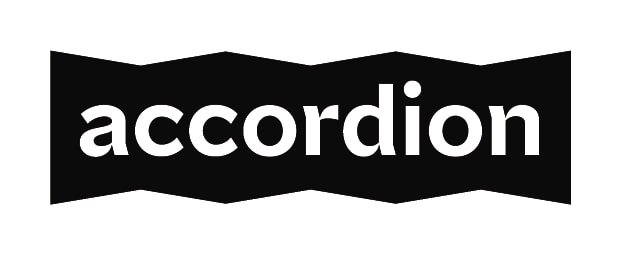

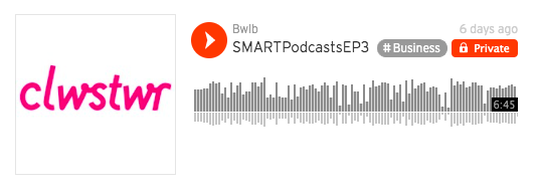
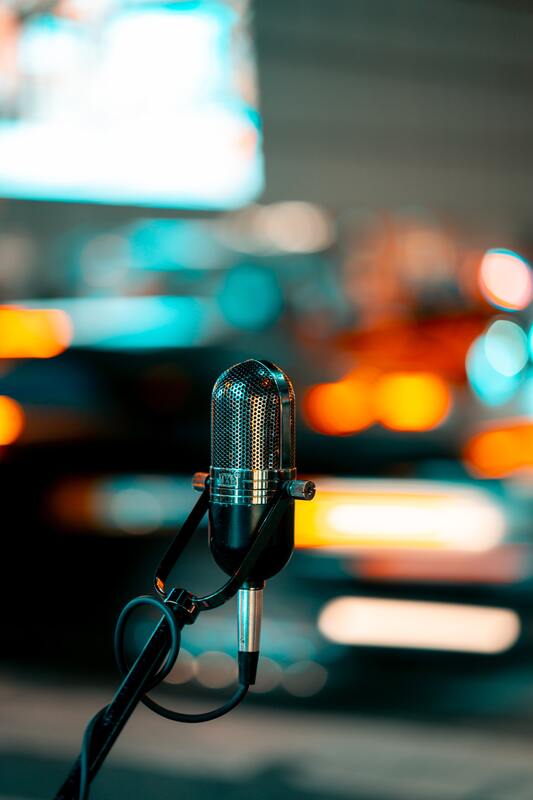
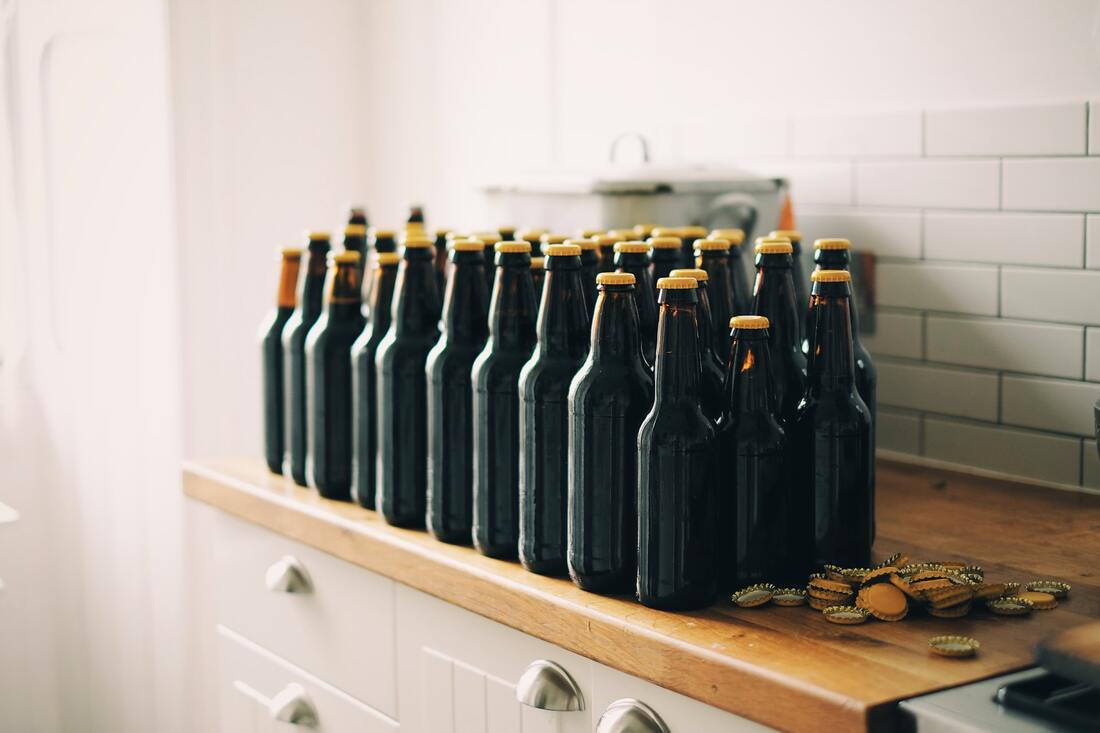
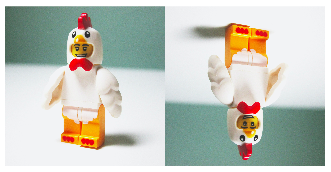
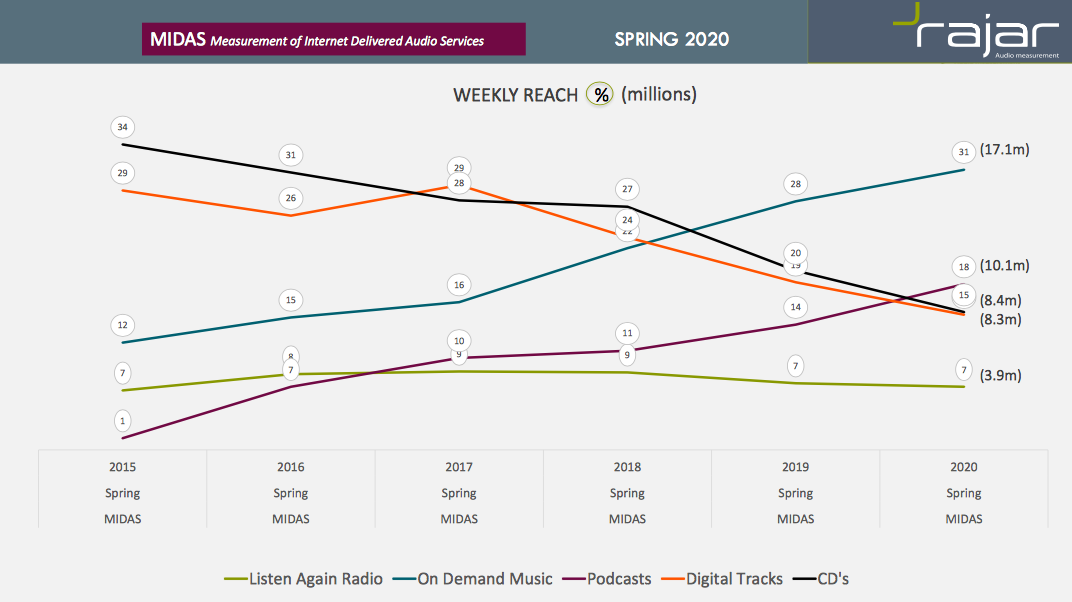

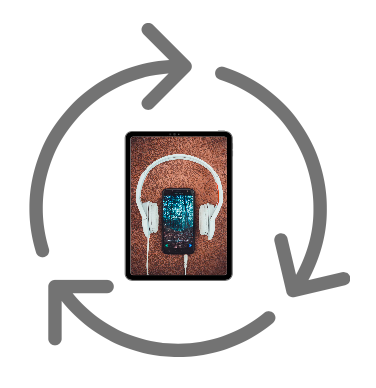
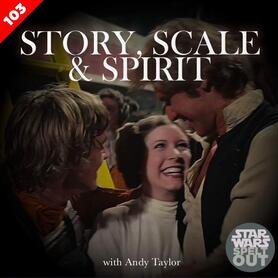

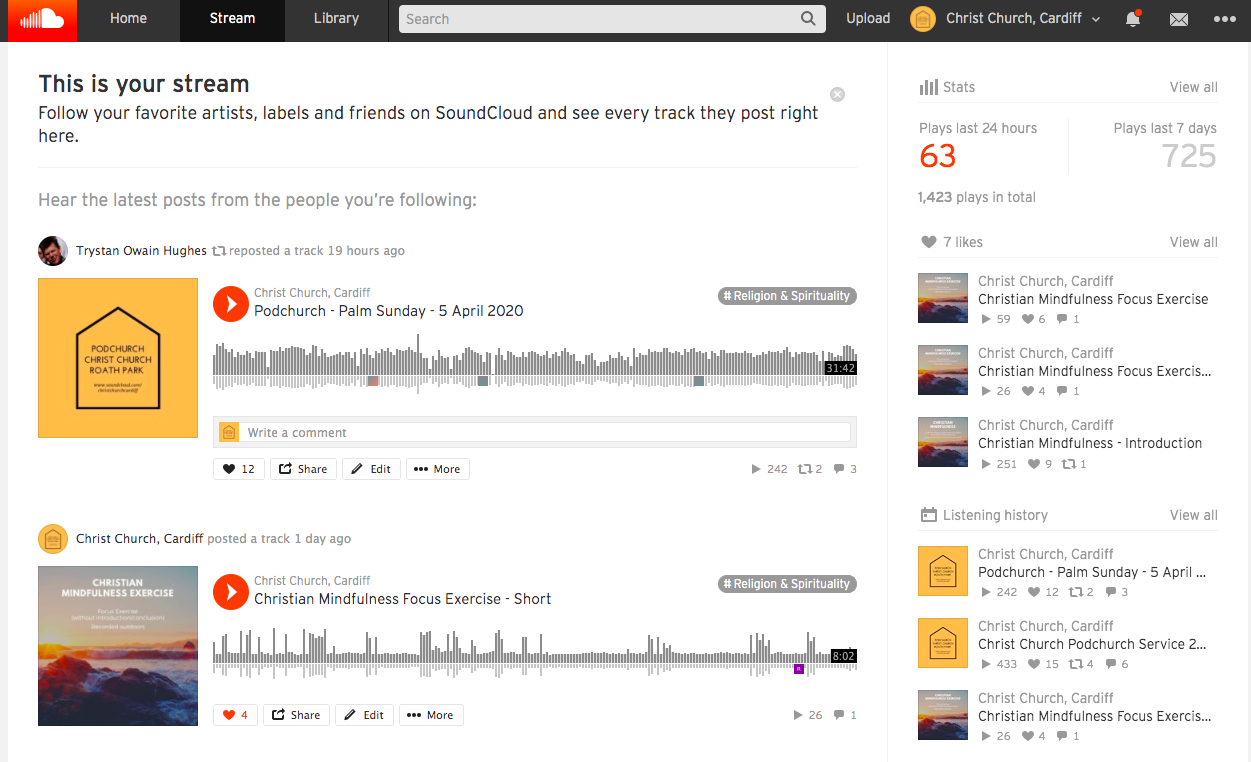
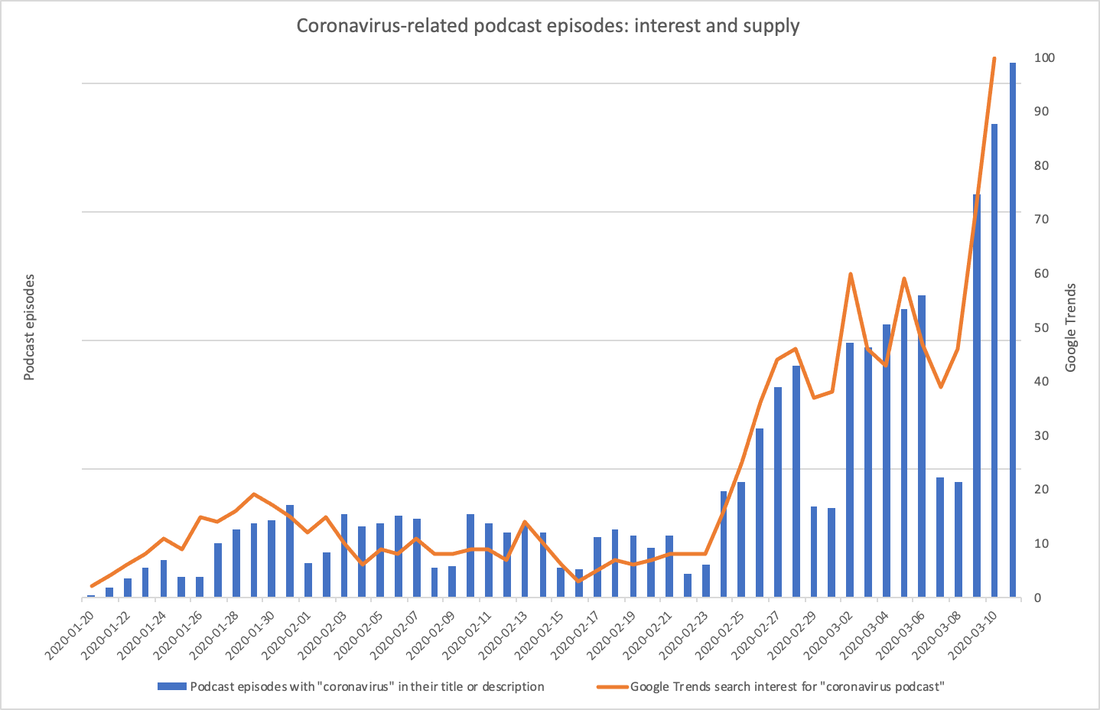
 RSS Feed
RSS Feed